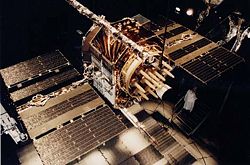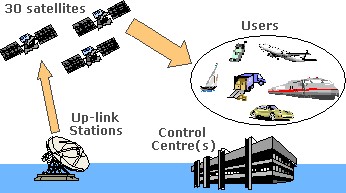Today, after six months of negotiations, the agreement was approved for South Korea to join the European "Galileo" project to develop a satellite navigation system that will compete with the American GPS system

The "Galileo" project is a navigation system that uses radio waves that are transmitted from several satellites in space to find exact coordinates for any place on Earth. And while Russia has a military navigation system called GLONASS and the United States has a semi-military, semi-civilian navigation system called GPS, the European Union is developing a full civilian system with higher capabilities and a much higher level of accuracy.
Project Galileo is a joint venture of the European Union Commission and the European Space Agency ESA which is built with the latest technology while the outdated American GPS system, which is regularly maintained, still relies on technology from the 70s.
The European system will consist of 30 satellites that will be placed in space (as opposed to the 28 satellites of the American GPS), and ground control and control stations at several points in the world for optimal control of the satellites' orbits. The system will increase the supply and availability of navigation services and even reduce the licensing costs that manufacturers are forced to pay to use these systems - after all, a worthy competitor to the American monopoly will be created, thus increasing the bargaining power of the manufacturers.

In recent years, global interest in the Galileo project has grown, and to date several countries that are not members of the European Union have joined the project, such as China, Israel, Ukraine, India, Morocco and Saudi Arabia. The joining of South Korea shows the country's desire to continue to lead Asia in the field of space as well, and participation in the project will give it access to research and development of satellites, control over setting standards and pushing the economy through the production of locally produced systems.
The joining of South Korea to the project will also provide the country with a percentage of the expected profits, and while the demand for navigation systems continues to grow due to increasing use in industries such as transportation, telecommunications, agriculture, and fishing, etc... the analysts predict that in 2020 the revenues from systems of this type will generate €275 billion per year ($330 billion) And 150,000 new jobs will be created in Europe alone.
